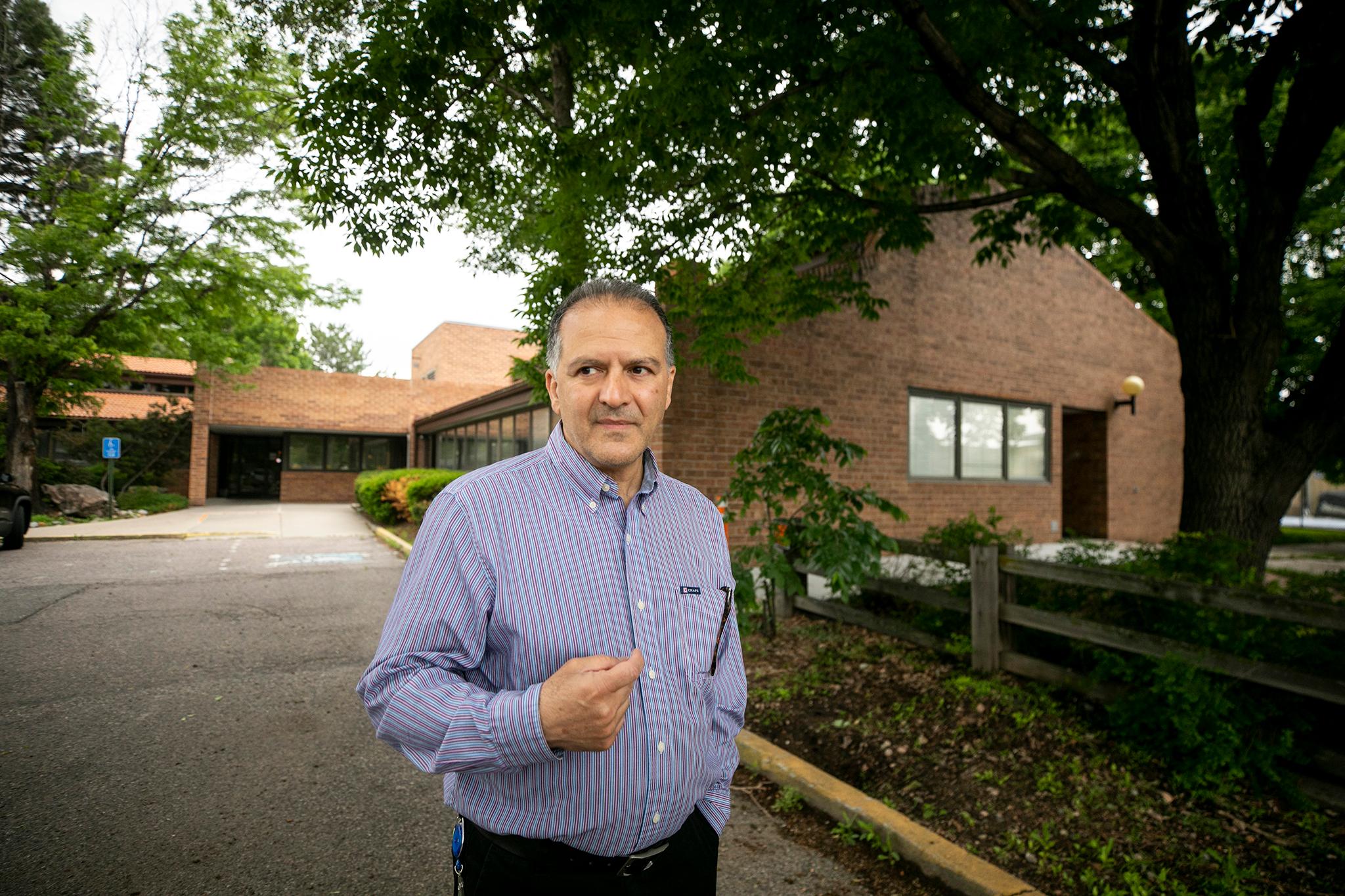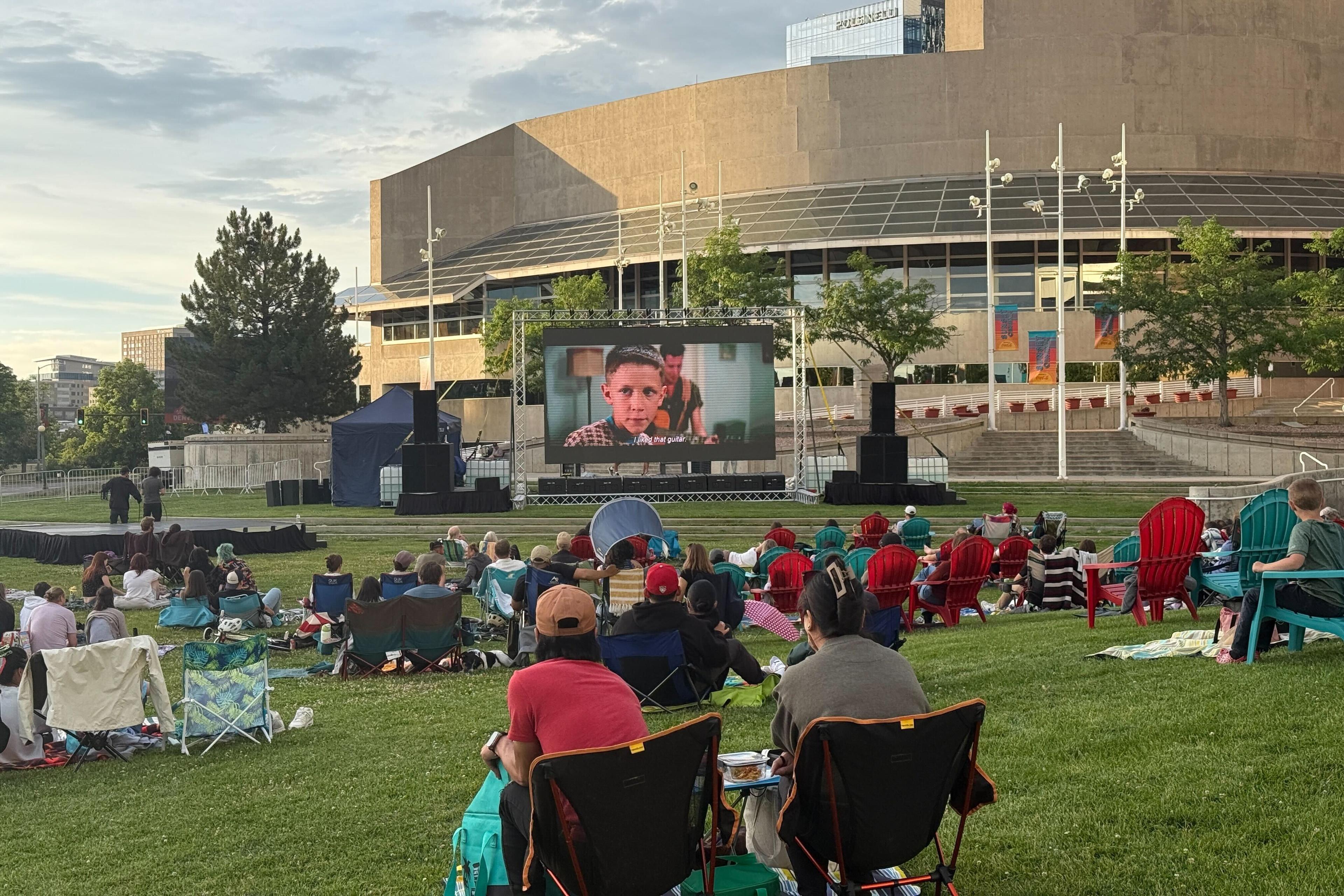A clinic that primarily serves low-income refugees and immigrants fears it will no longer be able to operate and expand the facility after City Council voted to downzone its property.
Several parcels in the University Hills neighborhood were legislatively rezoned, including the rare downzoning of the aforementioned Evans Medical Center, during a contentious City Council meeting Monday night.
Councilmember Kendra Black, who represents the southeast District 4 area, applied for the rezoning of about 164 acres of land in different spots of U Hills as a way to bring these properties into "compliance" with the Near Southeast Area plan.
That plan passed in late May and is a roadmap to how the area, which includes Goldsmith, Indian Creek, University Hills North, Virginia Village and Washington Virginia Vale, should look in the next 20 years. Area plans provide guidelines on zoning, land-use, neighborhood characteristics and amenities.

Many of the properties in Black's rezoning application were fine with the changes, including parcels at the Yale and Colorado RTD stations, which were both upzoned. But three properties at 4640, 4700 and 4770 E. Iliff Ave. took issue with the proposal.
These properties make up a medical office, a small bungalow home and the Evans Medical Center, owned by Ramin Vatan and his wife, Dr. Sara Vatan.
Vatan said the pair opened the clinic after his wife expressed discontent working for a "major healthcare system." The Vatans immigrated from Iran and Vatan said his wife didn't become a doctor only to help people who could afford it or who understand how the U.S. healthcare system works.
So, they purchased and opened the center in September 2020 on the corner of E. Iliff Avenue and S. Dahlia Street. Vatan said they went from zero patients to over 6,000 in the past few years, with most patients being immigrants, refugees, the uninsured and folks on public assistance. Vatan added that clinic employees speak over 10 languages, including Farsi, Turkish, and Somali.
"We opened Evans Medical Center with the goal to serve people who are disadvantaged, who feel that there is a health disparity, and who don't have too many places to go to," Vatan said. "That's what we give them when they come here. They feel like they are part of this building, part of the community that's inside the clinic."

Vatan said the clinic is essential to the neighborhood, providing that access to a vulnerable community and in the future, they'd like to contribute more to that community by expanding the clinic to offer dental, vision and mental health services. He'd also like to add some type of housing that would include temporary housing for the refugee and immigrant community.
However, Vatan said the rezoning could get in the way of those plans and may even lead to the closure of the clinic. He added that he was also concerned by a lack of communication from Black and CPD, and a harsh feeling that the clinic was being targeted and subjected to exclusionary rezoning.
Black said she initiated the rezoning proposal because of the Near Southeast Area Plan. Black added that the neighborhood has been calling for an area plan for at least 20 years because of the rapid development and growth.
The area plan has three main concerns including "modernize centers and corridors in terms of land use, design and mobility," which would focus on how the area grows.
According to Laura Swartz, the communications director for Community Planning and Development, residents who participated in the plan said development has felt very "piecemeal" and for more cohesion they'd like to see taller buildings along the corridors and a transition to lowered heights deeper into the neighborhoods.
While the plan calls for these types of growth guidelines, Swartz said, the plan nor CPD can't implement them. Only city council members can.

"When the city does an area plan, they need them to be implemented otherwise they're just aspirational," Black said. "CPD wants council members to do these legislative rezoning...Without doing the rezoning, the plan is meaningless because then developers can do whatever they want and not align with the plan."
The potential of development was also likely another reason for the zoning.
The Vatans and property owners at 4770 E. Iliff Ave. were in contract with Trammell Crow Residential to sell their properties.
A "Public Information Notice of Zoning Application Review" or ZPIN was filed in late October alerting residents and Black that the property owners at E. Iliff would be selling the parcels to Trammell who intended to build a seven-story apartment complex with 161 units. The ZPIN said the property would be fully residential and made no mention of affordable housing.
Vatan said they have since backed out of the contract because the plans didn't align with their future vision of the site, but the proposal left a sour taste in the mouths of many residents in the neighborhood.
Vatan said they purchased the clinic and the nearby bungalow at 4640 and 4700 E Iliff because the zoning was listed as CMP-H, which is a medical campus. Under that zoning, and with the property's proximity to a special district, they could build up to seven stories high.

Under Black's rezoning, the property would be downzoned to a G-MX-3, a general urban district that allows for a mixed-used development three-stories high. Under the Expanding Housing Affordability policy, a fourth story could be added if extra affordable housing units are part of the development.
With the G-MX-3 designation, the Vatans could still run the clinic and expand services the way they envisioned, albeit with three less floors. Several health clinics in the city operate under that designation, including Tepeyac Community Health Center, which also serves low-income residents and the uninsured.
But the erasure of those three possible floors are what the Vatans are worried about.
Vatan said taking that option away greatly depreciates their property value and equity. With the clinic providing, sometimes, free medical services, they rely on payouts from Medicaid, Medicare and an occasional grant to support the center. They also rely on the property's equity.
"It is true that we offer free medical services, but somebody has to pay for the free," Vatan said. "[This] will put us into negative equity and we would effectively lose our working capital...We use those lines of credit and the equity to pay for these free medical services."
Besides the loss of building stories and potential equity, Vatan said the Iliff property owners were not given sufficient notice of the changes.
The Planning Board agreed with him. In an 8-1 vote, the Board suggested in early May that City Council deny the rezoning proposal with their biggest concern being the communication efforts with the clinic.
The Board said the outreach to the property owners at 4640, 4700 and 4770 E Iliff Avenue, including the Vatans, wasn't sufficient.
"While board members generally agreed with the concept of height transitions, they expressed concern that the evidence presented regarding effective outreach for this sub-area of the rezoning package was not consistent with equity principles in Blueprint and Comp Plan, which identifies that achieving equity may require not treating every person or place exactly the same," Board members wrote.

Black pre-applied for the rezoning in November, but the Vatans said they weren't notified until February.
The councilmember said several mailers were sent out and she had conversations with William van Doorninck, who owns the medical offices at 4770 E. Iliff Ave. with one of those conversations centering around the proposed redevelopment plans.
Black said she told Trammell about the rezoning in November and told van Doorninck, who emailed her requesting that her office "speed up" the ZPIN approval. She added that she assumed representatives at Trammell would have told the Vatans about the rezoning proposal.
Vatan maintains that they weren't made aware of the changes until February.
The Board noted that they were denying the plans to allow for more conversation between Black and property owners and to allow Black to complete this process before her term is complete. Black decided not to run for reelection and her last day will be in July.
The Board suggested Black and property owners meet for mediations, but in five meetings, no agreement was reached.
Black said some suggestions included placing a deed restriction on the property that would keep the campus zoning and add a height limit. The property owners, including the Vatans, did not agree.
Vatan said although there were mediations, he felt Black wasn't receptive or communicative.

Vatan said he feels like the clinic is being targeted because it is owned by immigrants and serves immigrants. He pointed out that the Denver Academy, which shares a property line with the clinic, was excluded from the proposed rezoning and allowed to come forward with their own zoning request.
The Denver Academy is a private school and the property is zoned under the old Chapter 59 code. To bring the property up to date, Black said she initially included them in her proposal, but it would've needed to be zoned as a campus, which would allow them to build 12 stories.
Black said she reached out to the Academy, prior to reaching out to any other property owner, to discuss her plans and see if the Academy would consider agreeing to not build the 12 stories. Black said they agreed to apply for the campus zoning with a self-imposed waiver that would allow them to build only three stories, similar to the clinic. Black couldn't include this in her rezoning proposal because city councilmembers aren't allowed to include waivers.
During the city council meeting, CPD said they received 51 letters of support, including a letter from the registered neighborhood organization, the University Hills Neighborhood Association. CPD also received 22 letters of opposition, all focused on the medical center.
During the public hearing portion, more than 50 people spoke on the rezoning and they were split down the middle. Many people in favor of the proposal said they lived in the neighborhood and valued the center but could not agree with a seven-story building being allowed at the site. They added that the area plan has been in the works for several years and it should have come to no surprise to anyone if they were civically engaged.

Those in opposition echoed Vatan's views: that the zoning was discriminatory and that in the end the zoning would harm the clinic financially. Many speakers added that the area plan also recommends that the area needs to improve access to health services. One way suggests, "working with healthcare providers to facilitate development or remodel of buildings for healthcare uses."
Vatan said the proposal conflicts directly with this point because the downzoning would financially stop him redeveloping the site.
Council voted 10-3 in support of the rezoning with Councilmembers Debbie Ortega, Jamie Torres and Candi CdeBaca voting no.
Most councilmembers said that the rezoning would not stop the clinic from operating or expanding, but it would stop a seven-story building from disrupting the neighborhood's aesthetic. Some expressed confusion on why the zoning would prohibit the clinic from operating or expanding, though they didn't touch on the financial point the Vatans made.
"I don't believe that this decision that we make today, if it is in support, would impact [the clinic's operations]. I don't understand and I could not follow how people made that connection to a change of the rezoning to immediately mean that the work would stop because I certainly hope that does not happen," said Councilmember Chris Herndon.
Herndon and Councilmember Paul Kashmann also rebuked the claim that Black was proposing this rezoning from a discriminatory and racist standpoint. Instead, they said, the rezoning simply came about because of the area plan.
"Let's speak to the criteria. To go after Councilwoman's Black character is disgusting. There's just no other way to say that. That's not what we should ever do for any councilmember up here because they are doing what they believe is right...I'm sad that that's where the conversation went today," Herndon said.

Councilmember Chris Hinds and Amanda Sawyer disagreed with the claim that downzoning the parcels would decrease property values. Sawyer pointed out that with rezonings for accessory dwelling units, property values don't change, though that type of rezoning isn't prohibitive and CPD has previously said adding an ADU to a property would increase the value.
Ortega said the reason she was voting no was because of the potential loss in property value.
Councilmember Amanda Sandoval and Jamie Torres agreed that communication efforts between Black and the property owners should have been better.
Sandoval questioned Black's outreach noting that with her own rezoning plans, especially the ones considered controversial, her office extensively reached out to property owners via mailers and emails before an application was even filed. She asked why Black didn't contact property owners prior to the pre-application form.
While Sandoval voiced disapproval over the process and communication, she eventually voted to approve the plans.
"This is a failure of our system. It really is. It is a failure of our current zoning system and we have to take responsibility for that as land-use commissioners," Sandoval said.
Torres agreed with Kashmann and Herndon in that the rezoning wasn't coming from a place of malice. But overall there was a miscommunication issue that spiraled into a heated discussion on property owners' rights and created neighborhood divide. Miscommunication over the proposed zoning and miscommunication on redevelopment of the plots on Iliff.
"So much emotions been kicked up and what I see as limited authentic communication, it's allowed for polarization to kick in," Torres said. "I think this application could have been done differently, approached differently. But I feel like the early moves to redevelop, demo, build a full apartment complex made this very confusing. You have to acknowledge what message that sent...I don't know that every stone was turned but not out of malice. I don't agree that bigotry, targeting, discrimination were at play here. Just miscommunication."












